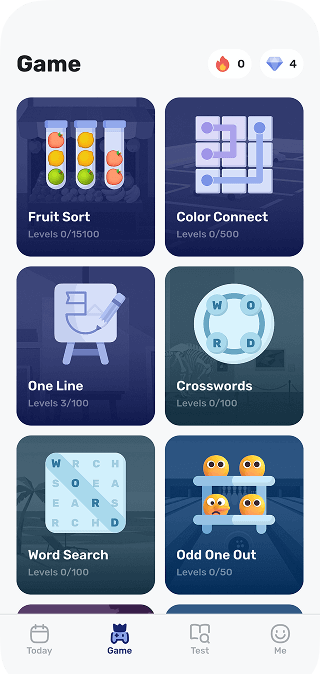How to Improve Logical Thinking? 5 Ways
Ron Spinabella Chief Editor / Oct 31, 2025
Logical thinking is essential for learning, work, and everyday life. People with poor logical thinking often struggle to organize their thoughts when studying, learning, or listening to others, and are even less able to clearly communicate their ideas. They are also prone to emotional outbursts and easily fooled or manipulated by others, as they only think superficially and simply accept what others say.

What is Logical Thinking
Logical thinking is the rational process of understanding things, using concepts, judgments, and reasoning to reflect objective reality. Basic logical thinking methods include abstraction, generalization, analysis, induction, deduction, comparison, forward and backward reasoning, and causal chains.
Practicing logical thinking helps us learn more effectively, such as better understanding what teachers or authors are saying; work more effectively, such as presenting work to leaders or clients in a clear and organized manner, conveying ideas, and persuading others; and live more efficiently, such as quickly understanding a book or movie. In short, practicing logical thinking can make us smarter, more confident, and more capable of standing out from the crowd.
How to Improve Logical Thinking
Of course, logical thinking isn't innate; it's cultivated gradually through learning. Some people cultivate it well, while others struggle. Below are some common methods I've used to cultivate my own logical thinking skills. You can refer to them.
1. Ask Questions
In your daily reading, study, and work, whenever you encounter important or moving information, you can use deliberate self-questions to guide your thinking and hone your logical thinking.

For example, when you come across a key point or conclusion in a book, ask yourself: Why did the author approach it from this perspective? How did the author reach this conclusion? What are the shortcomings of this conclusion? How could I write it better?
2. Writing
Writing is a process of organizing your thoughts. Taking the time to construct an understandable essay is actually a way to train your logical thinking and organizational skills. Because writing is a process of identifying a topic and then finding an answer, you first need to define the question, then decide on an approach, analyze the strengths and weaknesses of each approach, and finally form your own conclusion. Completing this entire process and writing an article is like practicing logical thinking.

As for what you write, the options are wide-ranging, including an original story, a reading or study reflection, or life reflections. Once your writing skills improve, you can pick a keyword and use it to build a logical structure for your article.
3. Reading
Every book has its own logical structure, with the table of contents representing the author's underlying logic. So, after reading a book, try memorizing the table of contents. This helps us understand the author's writing and thought process, honing our logical thinking skills while also testing our own understanding of the book – killing two birds with one stone.

Based on the author's writing logic, we can also break down and reorganize the book based on our own understanding and needs, organizing one or more articles or mind maps to suit our needs. For books about characters or stories, simply organizing the main content of the book using a timeline and event-based narrative after reading is also a very useful exercise.
Alternatively, you can draw on your own knowledge and ask yourself, "If you were the author, how would you write this book?" Then create your outline (logical structure).
4. Reasoning
Most people enjoy watching movies, so after watching a film, take some time to review the plot and main plot. Suspense, science fiction, and crime-themed films and books are particularly effective, as they challenge your logical thinking.

After reviewing your own thoughts, you can search online for other people's insights and compare them to see if you've missed any. Doing this regularly will improve your logical thinking and memory.
5. Brain Games
Logical thinking is directly related to your brain, so exercising it regularly is very helpful. There are many ways to exercise your brain, including reading, thinking, and writing, as I mentioned above.

In addition, engaging in brain training is also a good way to strengthen your brain. For example, in your free time, you can play free memory-building games on Brain Training. In addition to memory, this software can also quickly train attention and mathematics, helping you improve your reading and learning efficiency.
Final Thoughts
Whether or not a person can think, how they think, and whether or not they can think deeply all depend on their foundational knowledge. It's important to emphasize that our thinking style doesn't just emerge from thin air; it's constantly built, adjusted, and improved through various learning experiences.
In general, continuous learning and knowledge accumulation are the fundamental ways to improve our thinking style and cognitive abilities. Without sufficient foundational and background knowledge, our thinking will mostly remain superficial. Only by continuously reading and learning, accumulating diverse knowledge, and then using methods like writing to organize our thoughts, strengthen our understanding, and integrate all of this knowledge, can we truly enhance our thinking abilities.
Disclaimer
Any assessments and their associated content on this website, regardless of date, are not intended to replace direct medical advice from your physician or other professional. If you experience severe or persistent symptoms, please consult a licensed mental health professional or healthcare provider.












